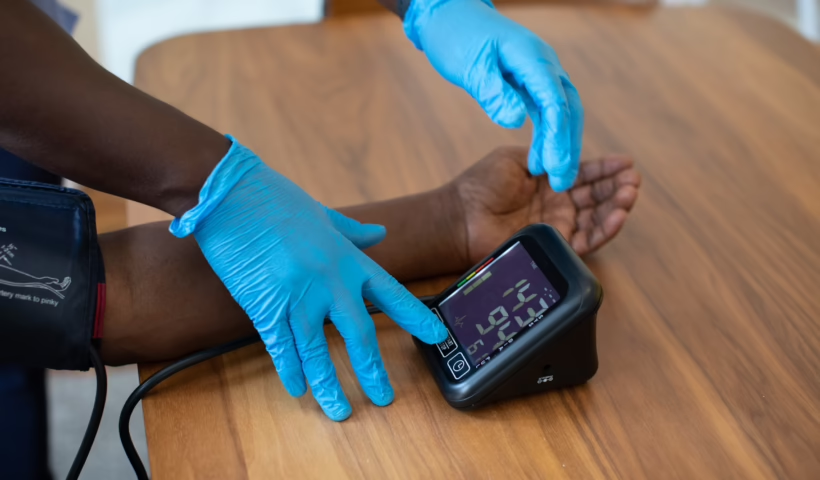Microsoft’s Azure recently introduced AI-powered digital twins that can independently make medical decisions. The technology raises serious concerns over AI’s role in healthcare due to challenges in model confidence and real-time data integration. In healthcare, studies have shown that digital twins can improve cardiac surgery decisions, despite the risk of undermining clinicians’ judgment. Security challenges are significant and current counter-measures have flaws. The future of digital twins hinges on balancing innovation with regulation, ensuring they augment rather than replace medical expertise.
View More Digital Doppelgangers: The Ethical Minefield of AI-Powered Digital TwinsCategory: Fall 2024
Uranus Isn’t Actually That Weird: New Research Suggests Potential for Life on the Distant Planet
When Voyager 2 became the first and only mission to fly by Uranus in 1986, the data collected by the probe defined the way astronomers understood the ice giant for the next 40 years. However, a new study published suggests Voyager 2 just happened to zoom by the distant planet on a particularly weird day. These findings mean it might be easier for future missions to search for oceans beneath the surface of Uranus’ moons. This study reminds us that not only are we constantly making new discoveries, but that discoveries we considered facts are ever changing.
View More Uranus Isn’t Actually That Weird: New Research Suggests Potential for Life on the Distant PlanetEthical Challenges in AI: From Mobile Apps to Self-Driving Cars
Hosted by Aryan Shah and Deep Shah, with Ethan Oblea and Jack Wang In this episode of the Viterbi Conversations in Ethics podcast, hosts Aryan…
View More Ethical Challenges in AI: From Mobile Apps to Self-Driving CarsBridging the Gap: Addressing Access Inequities in Emerging Healthcare Technologies
Hosted by Aryan Shah, with guest Alice Hernandez In this episode, we dive into the pressing issue of access inequities in emerging healthcare technologies with…
View More Bridging the Gap: Addressing Access Inequities in Emerging Healthcare TechnologiesWar Games: How America’s Military-Entertainment Complex Spreads Propaganda Through Entertainment
Media depictions of military conflict are often deliberately fraught with government biases and disinformation. In the United States, Hollywood often works in collaboration with the Department of Defense. The result is entertainment that doubles as military propaganda. Additionally, evidence shows that the video game industry works closely with gun manufacturers. Activision-Blizzard’s Call of Duty franchise presents a strong case study of the close ties between the American military-industrial complex and entertainment, both in historical revisionist narratives and in coordination with the U.S. military during development. These factors are worth critical examination as the interests of the American people do not always align with those of the military and their political allies.
View More War Games: How America’s Military-Entertainment Complex Spreads Propaganda Through EntertainmentReal or Fake? The Ethics of Deepfake Media
Deepfakes are a new form of AI that can simulate a person’s likeness and words using visual and audio media. The videos of Tom Cruise doing magic tricks that are surfacing on TikTok are prevalent examples of deepfakes; the actor has never posted such content on any of his official social media accounts and seems to be unaware of their existence. The possibilities in which deepfakes can be used are endless, as long as video and/or audio data of a subject can be obtained. This reveals ethical concerns surrounding the lack of regulation of deepfake technology. Engineers have a duty to address these concerns and improve the practices involved in deepfake research.
View More Real or Fake? The Ethics of Deepfake MediaBack to Our Roots: The Shift from Industrial Monoculture to Permaculture
In the decades following the Green Revolution, industrial monoculture has quickly become the dominant model of agriculture in the United States. Despite its economic benefits and high crop yield, monocultures have diminished biodiversity and operate on massive amounts of agrochemical inputs, which have caused extensive ecological and human damage. In hopes of shifting agriculture to a greater moral standing, agro-ecological models have been formulated that incorporate ecosystem processes into farming. Agro-ecology has culminated in the practice of permaculture, which enables ecological regeneration while growing crops in a sustainable manner. Permaculture is in its early stages of development, and agricultural engineers must shift their efforts to improving its design and feasibility for widespread use.
View More Back to Our Roots: The Shift from Industrial Monoculture to PermacultureDeveloping the Road to Nowhere: Ethical Considerations of Highway Expansions
Highway expansion has persisted across the last several decades in the United States. While these networks provide an important mode of transportation for people and cargo between major cities throughout the country, their expansion poses an ethical dilemma. The primary solution to bottleneck traffic congestion and prolonged commute times is to add extra lanes to existing highways; however, the relief is temporary, as their positive effects only last about five years. Further, highway expansion has been associated with unethical long-term effects that prove federal budgets should be investing in improving existing road infrastructure.
View More Developing the Road to Nowhere: Ethical Considerations of Highway ExpansionsSpace Colonization and Why Humanity is Better Off Not Pursuing It
Space colonization is an inevitable reality, with time as its only obstacle. While innovations in this direction are generally viewed as a positive advancement in humanity’s long-term future, crucial ethical concerns are often forgotten in common discourse. Before humanity makes further strides toward being an interplanetary species, the ethics of the ownership of land and resources in space, the fair allocation of resources, and the violation of any rights must be analyzed. If humanity insists upon moving forward with space colonization, numerous aspects must be reconsidered to ensure a morally proper and ethical operation.
View More Space Colonization and Why Humanity is Better Off Not Pursuing ItThe Politics of the Brain: The Ethics of Neural Engineering
Host(s) Joshua Fernandes, Asemayet, with guest(s) Jenna Saquib and Sabrina Sigh In this episode of the Viterbi Conversations in Ethics podcast, science meets conscience. Engineers…
View More The Politics of the Brain: The Ethics of Neural Engineering





